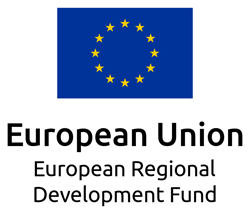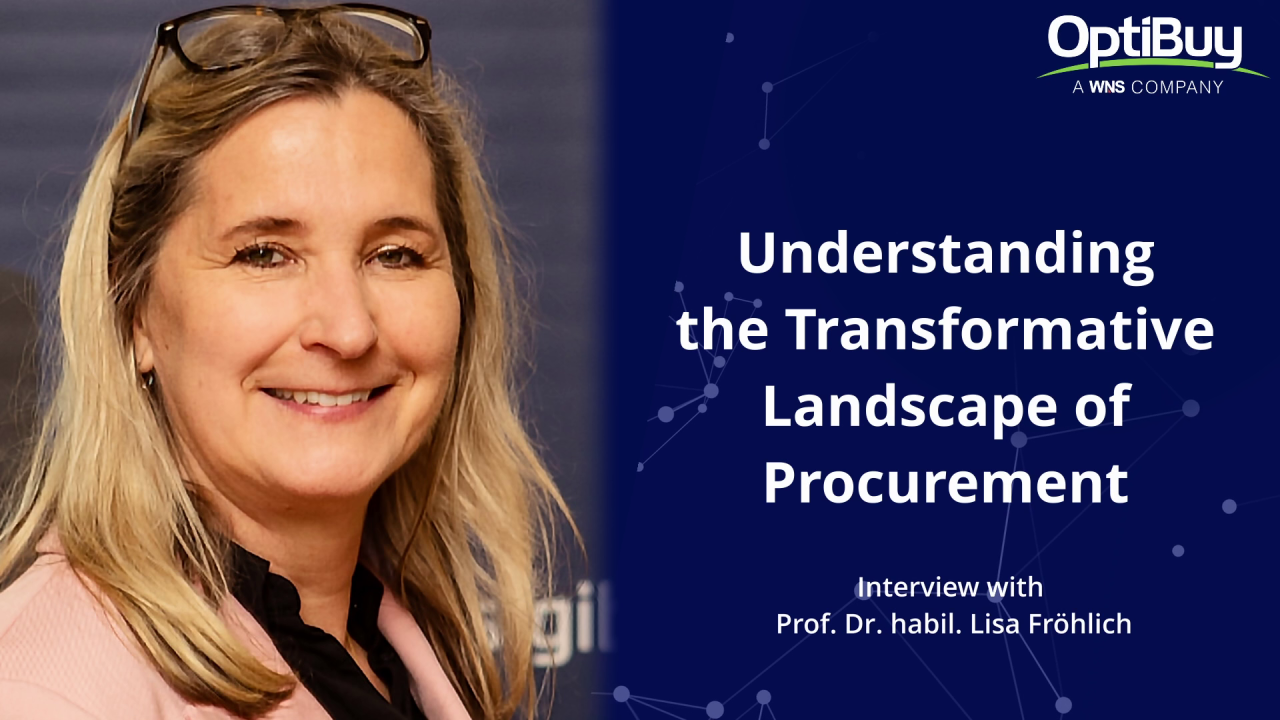Dr. Tomasz Gonsior: 20 years ago, cost or cost reduction was the main objective of procurement. How has this now changed due to the new challenges in the overall economy?
Prof. Dr. habil. Lisa Fröhlich: Well, first of all, one must simply say that due to the direct influence of procurement on corporate profits, this cost reduction issue will never completely disappear. But in recent years, especially throughout the COVID pandemic, we have seen that procurement increasingly views itself as a value-adding partner. Particularly, the additional value procurement can provide in terms of qualitative objectives. Currently, even when considering the legal situation, procurement is primarily responsible for risk analysis (i.e., reducing risk, creating robust supply chains). Procurement is, of course, also concerned with the question of quality because social, ecological supply chains have to be processed by procurement in a way that pays attention to the quality of the services and products to be purchased.
“This shift towards qualitative aspects, though essential, introduces a challenge from a business standpoint. While businesses excel in quantifying cost reductions, measuring qualitative output becomes a more intricate task.”
Therefore, we need to apply the appropriate KPIs to make this comparable and applicable to procurement. Procurement, like any other function, must also take responsibility towards the C-level and report what the achievements are. The softer it is, the more difficult it is, of course, to make this added value visible to the company.
Dr. Tomasz Gonsior: In the context of the current situation, do we have sufficient transparency in supply chains or do you think something is missing?
Prof. Dr. Lisa Fröhlich: In my opinion, a supply chain can never be 100% transparent. There are a few examples of this. While full transparency might never happen, it’s also not necessary. That’s why in German it’s called the “Supply Chain Due Diligence Law”. It’s not about creating a supply chain without risk, but rather about identifying – within those product groups where the company really has an impact – which severe human rights violations exist and how they could be addressed. Currently, there are no solutions for many problems. But that is also not what the law demands. Instead, it requires working together with suppliers to figure out what can be done to eliminate certain issues. That’s why I believe that 100% transparency is not necessary; however, this is what companies don’t really understand yet. It’s only about the supply chains where they really have this impact, and if you look closely at your product category strategy, it’s usually just four or five product groups, no more. All other supply chains can be disregarded. For example, I once had a discussion with a company that was worried about their palm oil, because it is one of the riskiest products. When asked how much their palm oil represented in market value, they admitted it was only something like 0.03%. They have no impact there, so that can be completely disregarded, and companies still don’t understand this. If you really focus on these important product groups, there are already enough examples showing that you can achieve transparency of 95-98%.
“Achieving transparency at a specific moment is one aspect, but I anticipate that, moving forward, the emphasis will significantly shift towards sustained transparency over time.”
It’s imperative to stay consistently informed about the unfolding dynamics at every stage of the supply chain. But that’s the next step. The first step is to find out where the real problems in my supply chain are. If something like the COVID-19 pandemic or another crisis happens again, where do I need to start to keep this supply chain functioning?
Dr. Tomasz Gonsior: What does the CSRD, Corporate Social Reporting Directive, mean for us or what is required of us in terms of procurement?
Prof. Dr. Lisa Fröhlich: That’s a good question, because, as I mentioned, the first companies that fall into this category are just starting to prepare for it now. This will happen this year, in 2024. The first companies will have to submit their reports. I find it interesting that while there is a lot of research happening in this area, I fear that the procurement department is currently not really being addressed, even though I believe that it will once again be the main driver to obtain this information. That’s because I need the information from the supply chain directed towards the suppliers and not the part that concerns the end consumer. I strongly recommend companies conduct an internal audit of existing sustainability certificates.
“Before establishing dedicated teams, it’s essential to assess the groundwork already laid and actions taken in preparation for the Supply Chain Act. The CSRD, aligning with the European version of the Supply Chain Act, allows for the incorporation of existing efforts.”
To streamline this process, I advise companies to scrutinize their sustainability management and identify functional areas that can provide the necessary information. This approach avoids starting from scratch and encourages a more efficient utilization of existing resources in alignment with the directive.
Dr. Tomasz Gonsior: Recently, there has been a lot of talk about AI. From your perspective, what is the significance of artificial intelligence, and what conditions must be created in companies to efficiently utilize this artificial intelligence in procurement?
Prof. Dr. Lisa Fröhlich: First, I must say that I am not a big fan of jumping from one technology to another and then completely forgetting the others (e.g., Robotics and 3D printing), which still have immense potential to drive circular business models. So, just focusing on artificial intelligence now is a bit misguided. But as I said, to get out of the current crisis the world economy is in, I need economic growth. And I can only achieve this through qualitative growth – that is, growth through innovations and new business models – for which I need technological support. Artificial intelligence is an extremely essential tool in this regard, because it allows us to verify things that used to take years within seconds. We need to be aware of that. However, this also means a bit of a change in the basic understanding of society.
“Numerous companies lack a distinct vision or set of values, making the integration of technologies like artificial intelligence challenging, as they are often perceived as threats.”
But we must not see it as a threat, rather as something that helps us move forward and develop new, creative ideas. And what employees often see as a threat is that, if we continue business models as before, artificial intelligence is certainly a technology that will rationalize many jobs away. But if we take this new path, which is inevitable through sustainable transformation, we will need to build new business models. Just look at the existing circular business models, in which procurement plays no role, although it’s the only function that can really implement this in the first place. Once we recognize this, artificial intelligence is simply the best tool we have to help us quickly identify which paths are not viable. What we used to have to determine through hundreds of experiments, artificial intelligence tells us quite quickly, but it cannot develop the new business model. That’s the big difference, and that’s why I see a lot of potential, especially for procurement, which will have to control the innovative changes in the future.
Dr. Tomasz Gonsior: Given the advancements in artificial intelligence, can buyers eventually become obsolete? How does strategic purchasing adapt, considering the distinct human role in managing partnerships?
Prof. Dr. Lisa Fröhlich: I must clearly say no. I just read a very interesting article in Handelsblatt about which professions are at risk from artificial intelligence. As I said, where we need to strategically move forward and develop new ideas, humans are irreplaceable by artificial intelligence, and I see this very clearly in purchasing. That means strategic purchasing is the kind of purchasing that must manage the new partnerships in the supply chains, which will also play a very central role for the end consumer in the future. So, this self-conception of purchasing is currently undergoing a rapid change that needs to be steered by people.
“Negotiating for strategically significant products cannot be replaced by technology alone.”
That wouldn’t make any sense. However, where technology can provide me with a lot of input is operational purchasing. In fact, what is very important, and which many companies still haven’t realized, is that the whole of operational purchasing is no longer needed. I always tell employees, they must see this positively. If they are clerks but could work on a really interesting topic in strategic purchasing instead, why would they want to continue being clerks? Go ahead, get further training, attend workshops, and do something that really advances the company. But there is also still the issue that many people cling to their current jobs without seeing the potential behind them, because the communication from management is not right. A management team must also communicate this as an option for their own employees. I think we need to realize this societal change before we can see that certain functions will play a very different role in companies in the future. I’m also always such a big proponent of change because all companies still follow the logic of Porter’s Value Chain. We have the primary functions from incoming logistics to sales, and then there are the supportive functions like IT, corporate infrastructure, procurement, and HR. But let’s be honest, which company still functions without IT? Therefore, the supportive functions have to become the primary ones because they will guarantee the future success of companies. But it’s very difficult to gain recognition for this needed change without empirical proof. This is why I believe that companies need to lead by example in this area. A chief procurement officer once told me that he would very much like to do that but can’t implement it in a position without system relevance for the company. That procurement, in the eyes of C-level, doesn’t yet possess this system relevance is part of the current problem. But then we’re back to the original problem: if the major goal of procurement lies in cost reduction, this has nothing to do with long-term planning, sustainability, and transformation. This old school understanding of procurement as a purely operational task should no longer exist because we have the appropriate technology to take over. That’s simply a waste of human resources. We need these qualified people to solve the challenges of strategic procurement.










